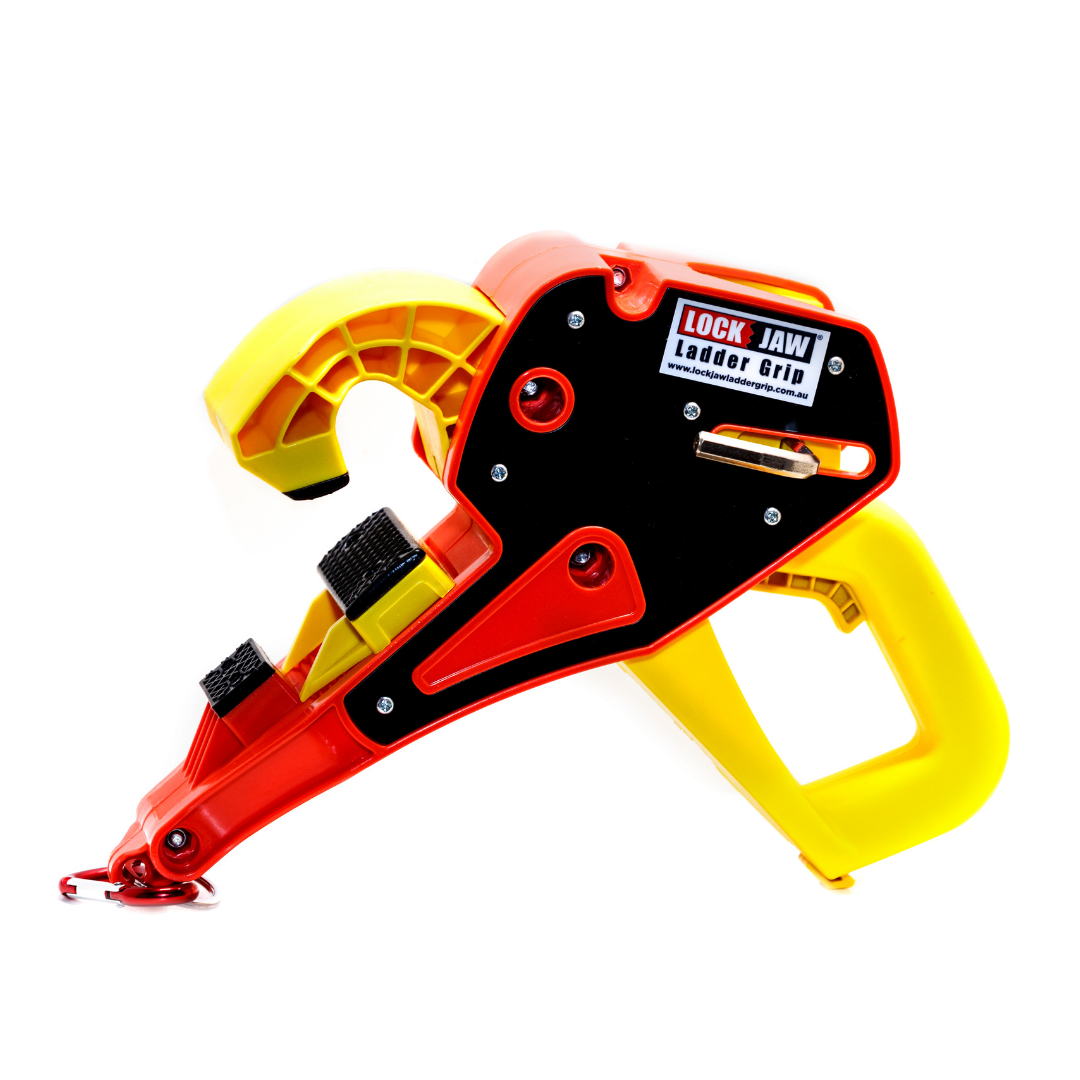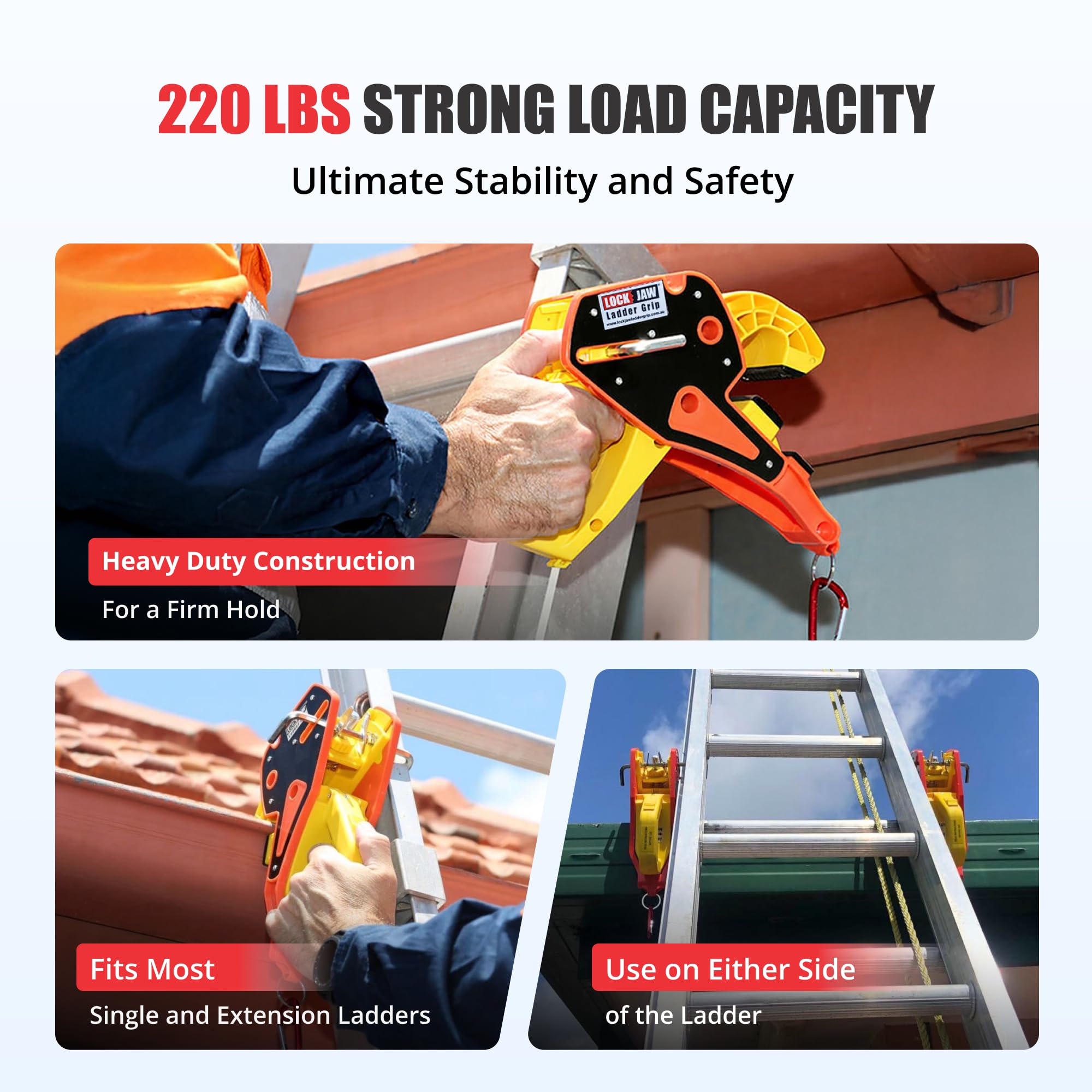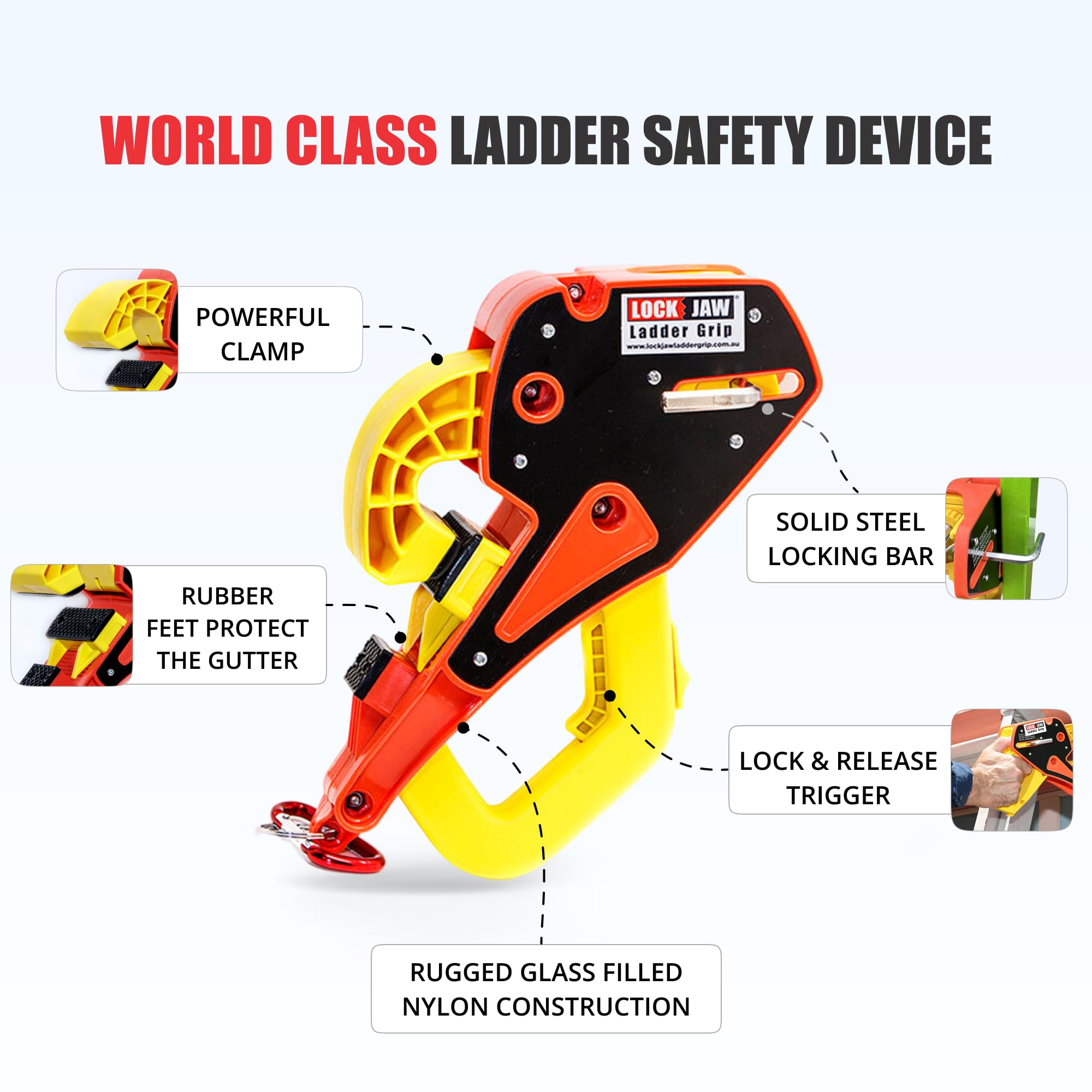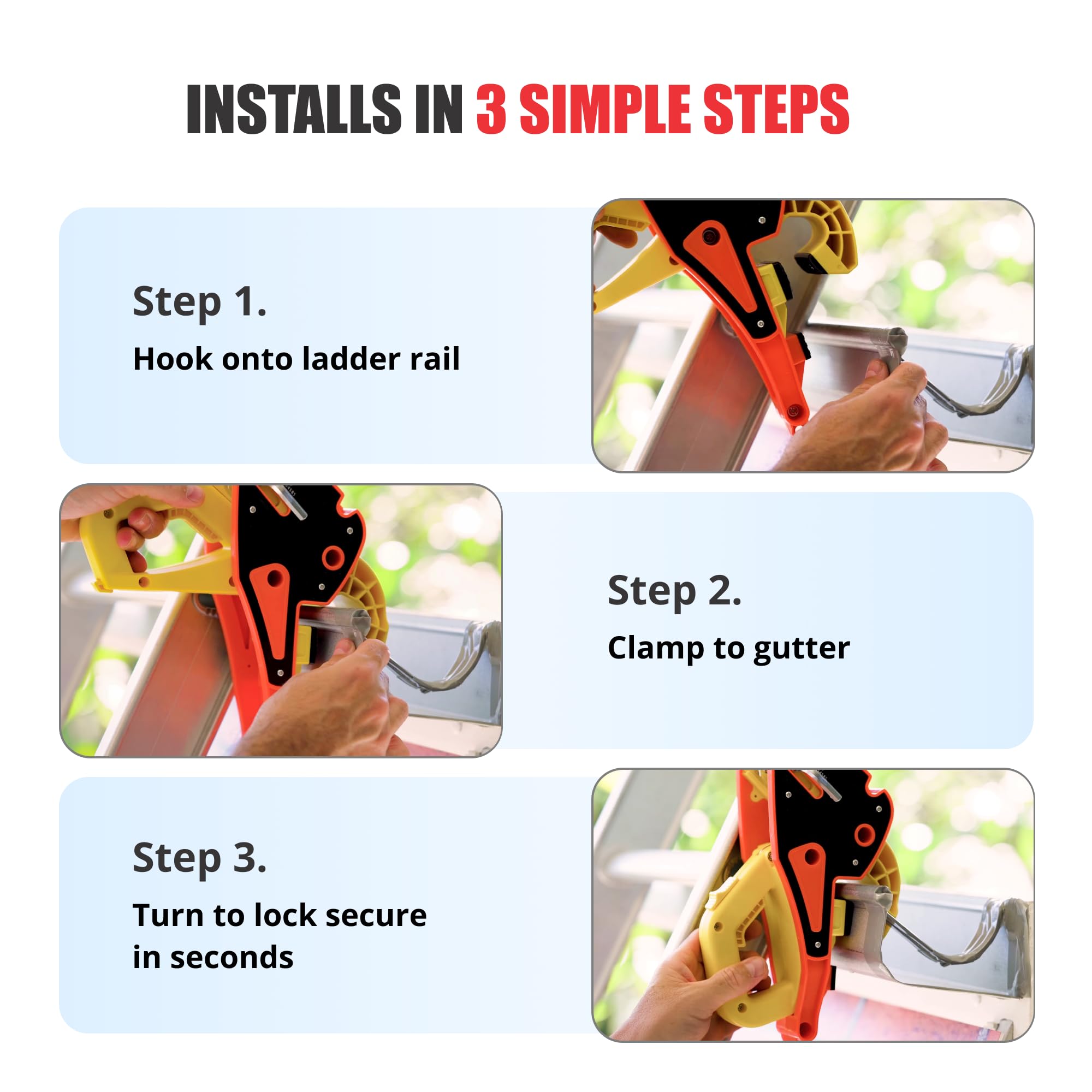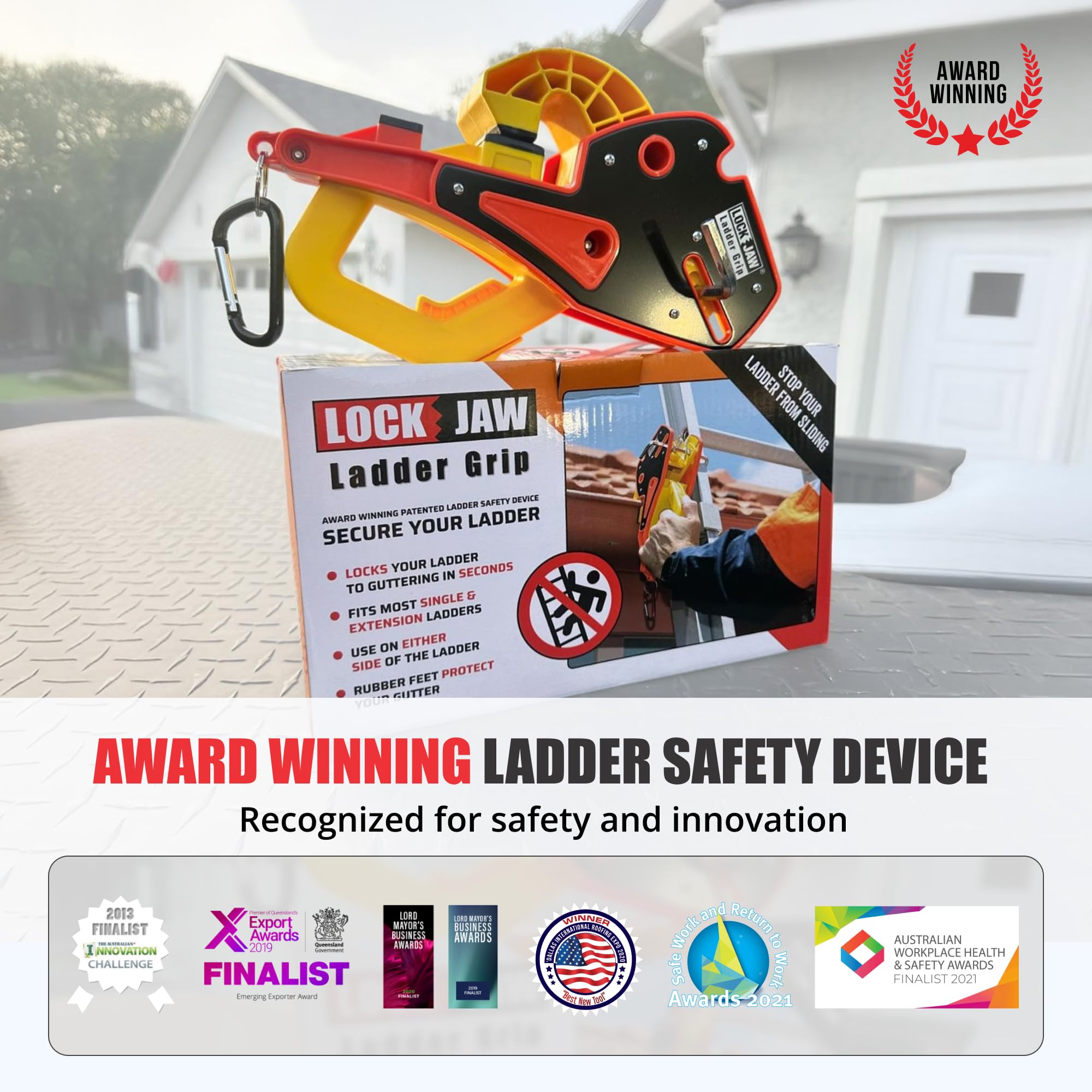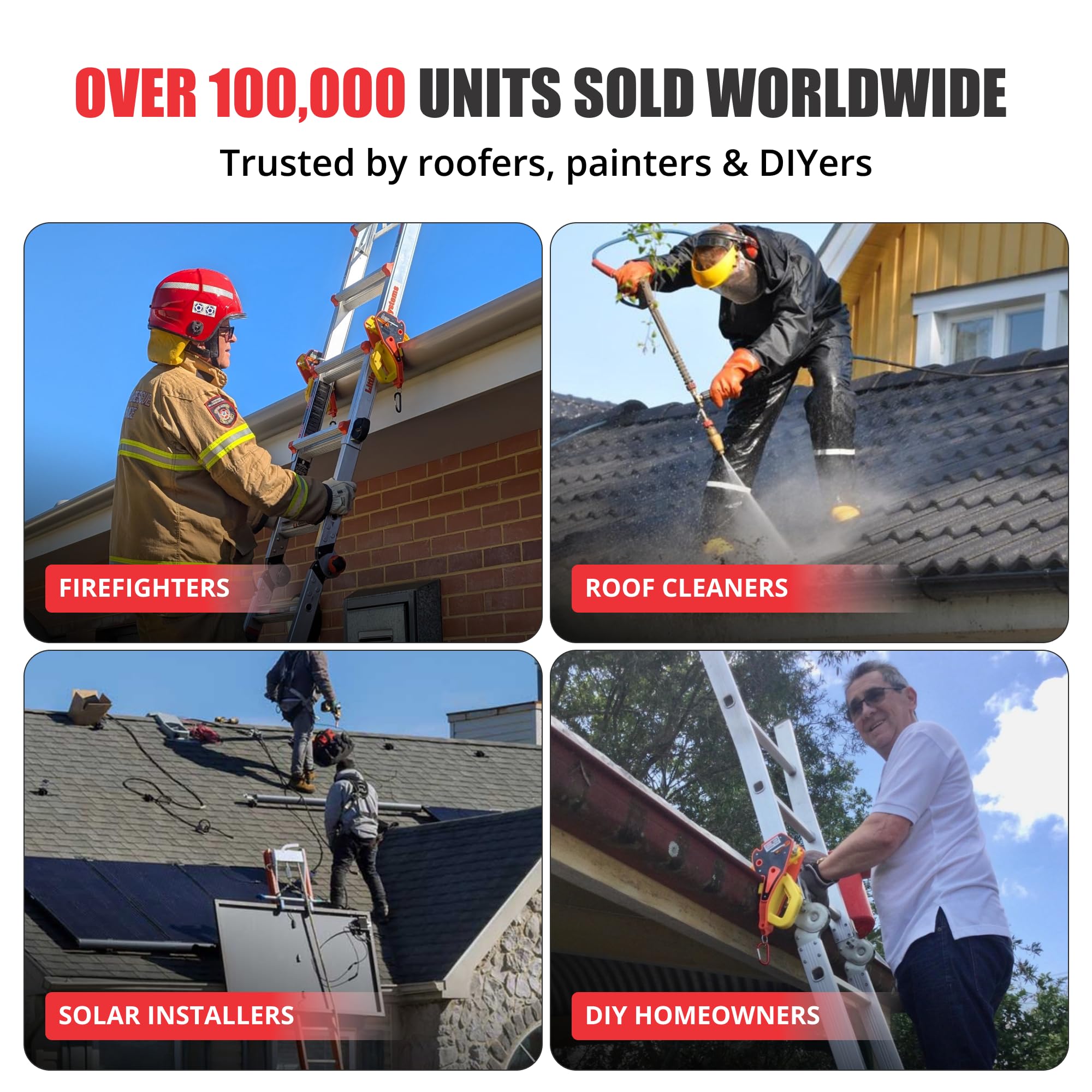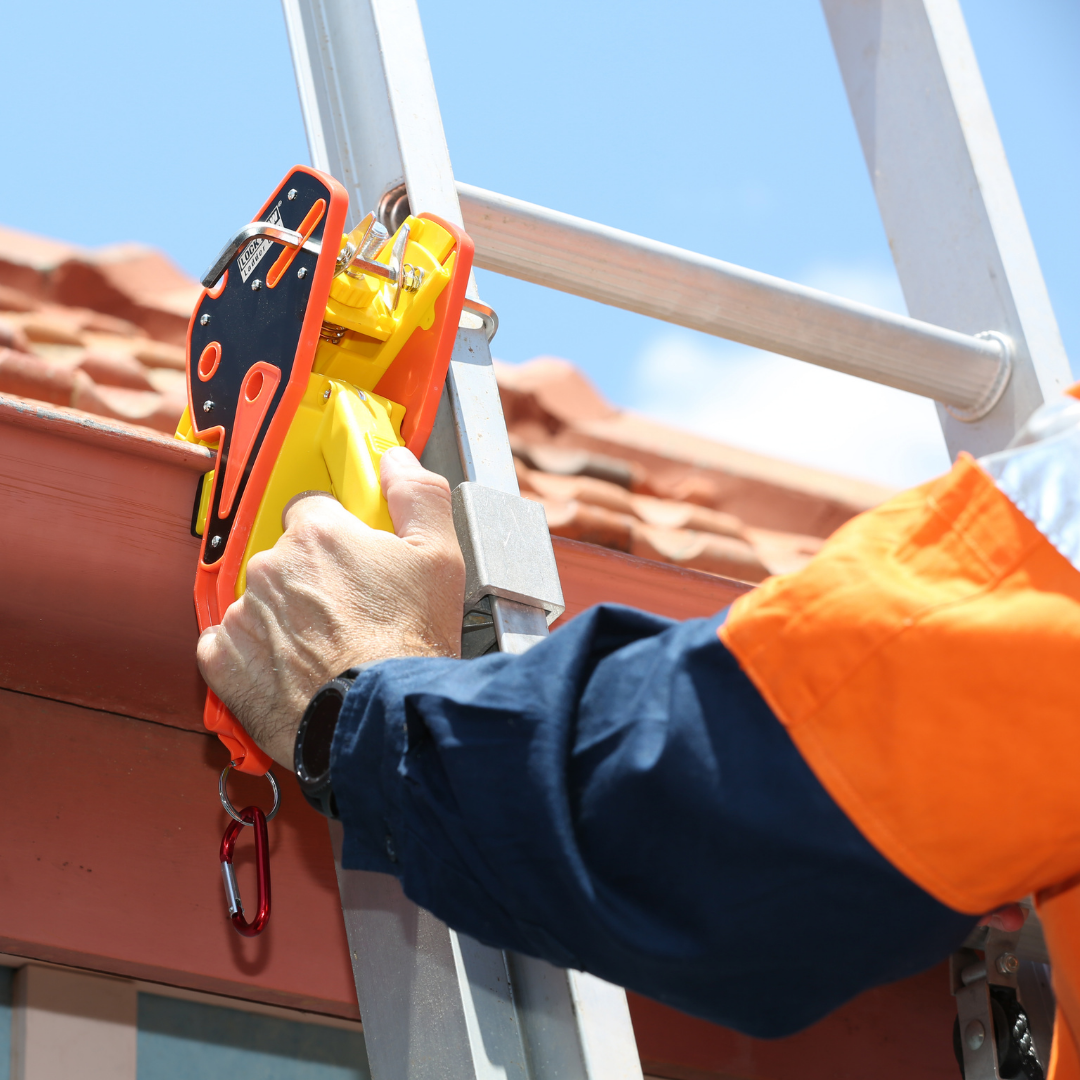How to Choose the Right Ladder Stabiliser for Your Work

Why the Right Stabiliser Matters in 2025
Whether you’re a roofer, painter, or maintenance contractor, ladder stability is non-negotiable. Under updated WHS regulations, including provisions in NSW, QLD, and other states, ladders must be secured against movement, not just placed carefully. A stabiliser is one of the most effective ways to meet this requirement and reduce fall risk.
Types of Ladder Stabilisers by Application
-
Lock-On Gutter Stabilisers
- Best For: Roof edge work, gutter cleaning, solar installs.
- How They Work: Clamp directly to the gutter, locking the ladder.
- Example: Lock Jaw Ladder Grip.
-
Wall Stand-Offs
- Best For: Painting, window cleaning, working around overhangs.
- How They Work: Hold the ladder away from the wall for better balance and surface protection.
-
Wing Span Stabilisers
- Best For: Working around expansive windows or fragile surfaces.
- How They Work: Extend the ladder’s contact points for greater stability.
-
Roof Hooks with Stabiliser Arms
- Best For: Pitched roof work.
- How They Work: Hook over the ridge and add stabiliser arms for extra security.
Safety Certifications to Look For
When choosing a stabiliser, check for:

- AS/NZS 1892 compliance— ensures the stabiliser meets Australian safety standards for ladders and accessories.
- Load rating compatibility— matches or exceeds your ladder’s duty rating.
- Non-marring contact points— protect gutters, walls, and roofing materials.
- Corrosion resistance— essential for outdoor and coastal work.
Comparison Table: Popular Stabiliser Types
|
Type |
Stability Level |
Setup Speed |
Best For |
Compliance Benefit |
|
Lock-On Gutter Stabiliser |
★★★★★ |
Under 10 sec |
Roof/gutter work |
Directly secures ladder per WHS Reg s79 |
|
Wall Stand-Off |
★★★★☆ |
1–2 min |
Painting, windows |
Improves balance, reduces slip |
|
Wing Span Stabiliser |
★★★★☆ |
1–2 min |
Wide/fragile surfaces |
Wider contact area for stability |
|
Roof Hook + Arms |
★★★★☆ |
2–3 min |
Pitched roofs |
Prevents slide on slope |
Buying Guide: How to Choose the Best Ladder Stabiliser

- Match to Your Work Type— Roofers benefit most from lock-on gutter stabilisers; painters may prefer stand-offs.
- Check Compatibility— Ensure the stabiliser fits your ladder’s rail profile and width.
- Prioritise Compliance— Choose a model directly addressing WHS requirements for securing ladders.
- Consider Portability— If you move between sites often, opt for lightweight, quick-fit designs.
- Invest in Durability— Look for corrosion-resistant materials and robust locking mechanisms.
Lock Jaw’s Edge Under the New Laws
The Lock Jaw Ladder Grip stands out because it:
- Locks directly to the gutter in seconds, eliminating lateral slip.
- Meets WHS Reg s79 and equivalent provisions in other states for securing ladders against movement.
- Reduces reliance on a second person to hold the ladder.
- Speeds up setup without compromising safety.
For tradespeople, it’s not just a stabiliser, it’s a compliance tool that pays for itself by preventing incidents and avoiding fines.

